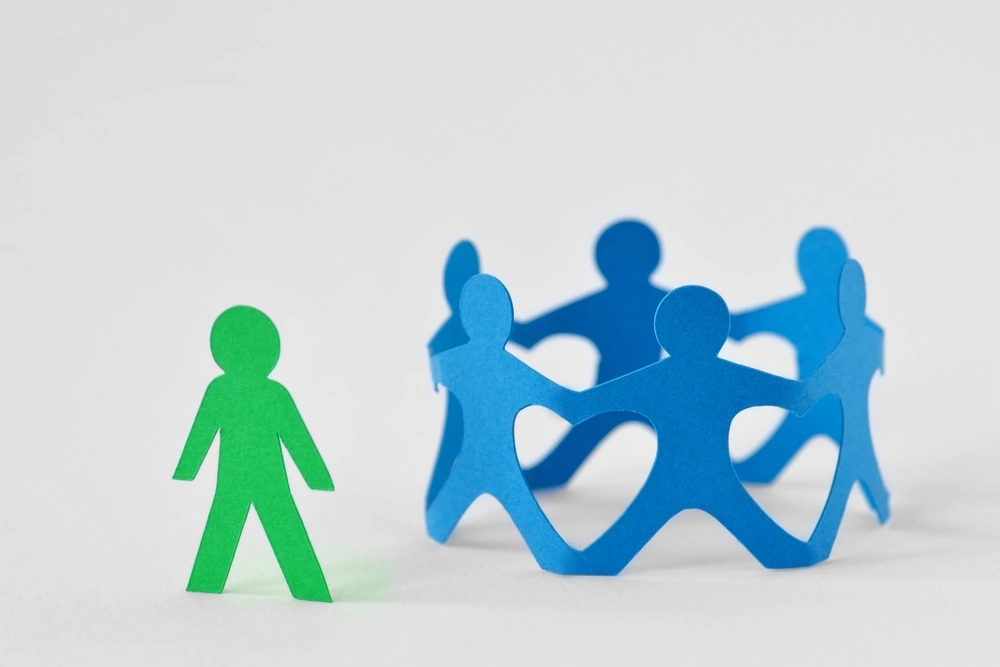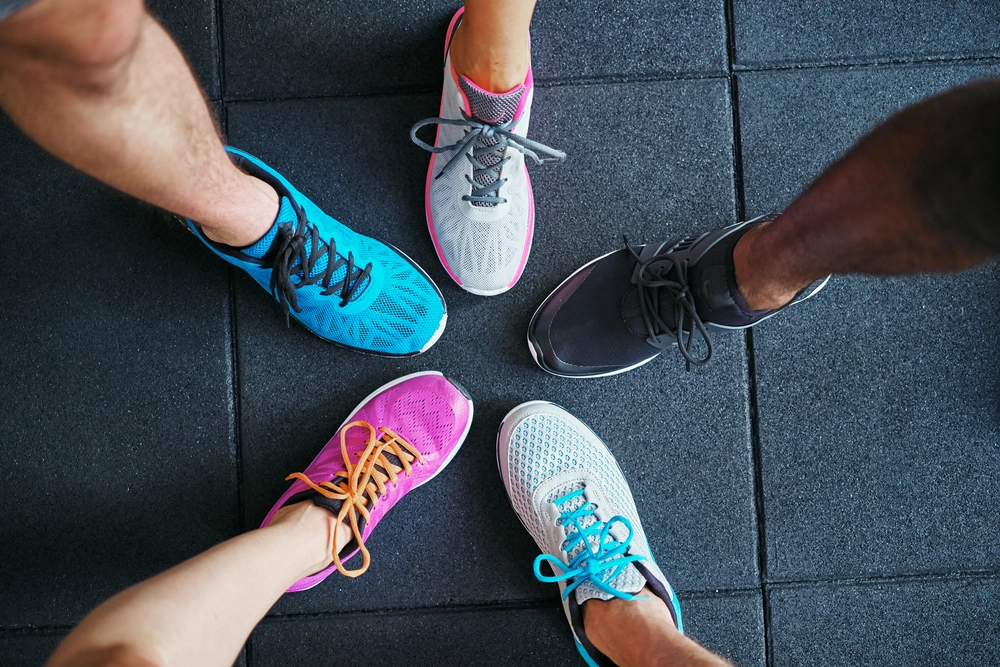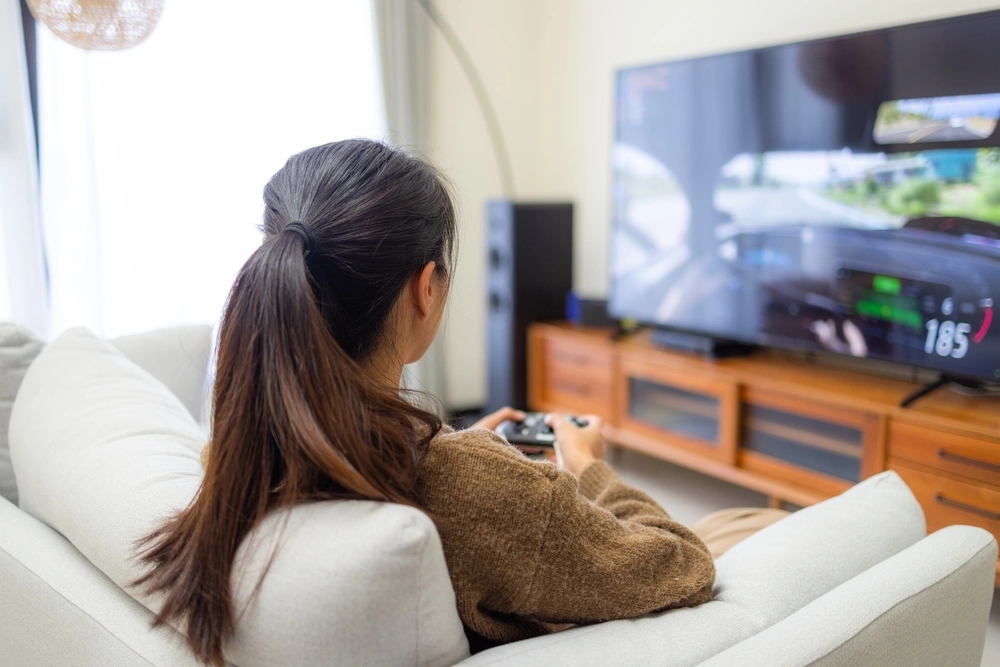In today’s world, a surprising number of people still grapple with intense feelings of loneliness, even though technology allows us to be more connected than ever before. Despite our advanced communication tools, about 33 percent of adults worldwide have reported experiencing feelings of loneliness.[1] This sense of isolation has only been magnified by recent events like the COVID-19 pandemic and the surge in remote working.
A universal emotion spanning across age groups and cultures, loneliness can act as a precursor to various mental health challenges, including depression and addiction.
Resources:
[1] https://www.statista.com/statistics/1222815/loneliness-among-adults-by-country/
How Loneliness Fuels Addiction
Loneliness often drives us towards unhealthy coping strategies, and alarmingly, many turn to substance use to try and cope with their feelings. The void left by the absence of genuine human connection can lead some to seek temporary relief from drugs or alcohol. Our youth are especially vulnerable, and isolation can amplify the lure of substances as a way to fit in or numb emotional pain.
Unfortunately, this temporary solace comes at a price. Using substances may offer a brief respite, but over time, it only deepens the feelings of isolation. As the cycle continues, the link between loneliness and addiction strengthens, underscoring the pressing need for early intervention and support.
The Connection Between Isolation and Addiction
The modern lifestyle, often marked by living alone or the increasing trend of working from home, can inadvertently boost feelings of emotional loneliness. This kind of isolation not only diminishes our social checks and balances but also reduces our accountability towards others, making it easier to conceal substance use or problematic drinking. Recent findings from a study during the Catalonia lockdown revealed that about 40 percent of substance use disorder (SUD) patients reported an increase in both the quantity and frequency of their consumption.[2]
Without the routine of daily social interactions, people may find themselves increasingly turning to drugs and alcohol to fill the void or simply find comfort. The irony isn’t lost: even as our world grows more interconnected, the emotional gaps appear to widen, pushing some towards unhealthy dependencies, particularly in the face of external stressors and limited access to face-to-face treatment. This is further supported by studies that indicate high relapse rates among SUD patients, with some even using substances as coping strategies or due to boredom.[3]
Resources:
[2] https://karger.com/ear/article/28/4/243/828276/COVID-19-Lockdown-and-Consumption-Patterns-among
[3] https://link.springer.com/article/10.2165/00002512-200219080-00004

Self-Prescribed Isolation
When dealing with addiction, many people instinctively retreat, using isolation as a shield from judgment and external pressures. They believe that by distancing themselves, they can better manage or even hide their addiction. Unfortunately, this self-imposed isolation often amplifies feelings of loneliness, leading to a heightened sense of shame and guilt.
As this cycle perpetuates, it solidifies the misconception that substance users or problem drinkers can navigate their addiction journey solo. In contrast, the longstanding success of Alcoholics Anonymous (AA) emphasizes the power of interpersonal connections. A primary recovery tool for those grappling with AUD, AA creates a unique environment where members can directly engage with a sponsor and attend group meetings. This sense of community and personal connection not only aids in continuous abstinence but also serves as a testament to the importance of being part of a collective in overcoming addiction. [4]
Resources:
[4]https://www.cochranelibrary.com/cdsr/doi/10.1002/14651858.CD012880.pub2/full
Hiding Drug Use
The societal stigma surrounding substance use often pushes many to shroud their use in secrecy, and this behavior only magnifies feelings of loneliness and alienation. The continuous need to cloak their habits from loved ones further entrenches them in the cycle of addiction.
With every concealed instance of use, the emotional divide deepens, making it increasingly difficult to reach out for help or admit the extent of the problem. In essence, what starts as a means of self-protection can quickly spiral into a trap of isolation and despair.
Loneliness and Drug Use
For some, drug use begins as a means to combat or escape the heavy weight of loneliness. However, as they continue down this path, they find themselves further detached from their loved ones and the community, amplifying the very loneliness they sought to alleviate.
Research reveals that among late adolescents, particularly females aged 18 to 20, loneliness is associated with a heightened risk of alcoholism. Lonely females in this age bracket have been found to exhibit higher levels of alcoholism risk compared to their male counterparts and even non-lonely peers.[5] In another case, a study involving adults receiving methadone maintenance treatment (MMT) showed a gender-specific relationship between loneliness and illicit opioid use. Among women, severe loneliness was correlated with a greater likelihood of illicit opioid usage, whereas for men, loneliness appeared to be linked with a reduced likelihood.[6]
Resources:
[5] https://pubmed.ncbi.nlm.nih.gov/1789179/
[6] https://pubmed.ncbi.nlm.nih.gov/31232142/
The Effects of Addiction and Isolation on Substance Users
Engaging in substance abuse, particularly when combined with isolation, can lead to a cascade of detrimental health and socio-economic impacts. Some of the pronounced effects include:
- Physical Health: Rapid deterioration due to neglect and escalated substance use.
- Mental Health: A rise in issues like depression, anxiety, and increased suicidal tendencies.
- Employment: Loss of jobs, leading to financial hardships.
- Emotional Triggers: The cause of addiction can often be linked to feelings like loneliness.
- Compounded Struggles: Isolation amplifies the health effects, making recovery more challenging.
The Effects of Addiction and Isolation on Loved Ones
Loving someone affected by SUD is already challenging, and isolation only intensifies this. A study from the Icelandic National Centre for Addiction Treatment sheds light on this complex relationship:
- Emotional Strain: Beyond the increased depression, anxiety, and stress stemming from a family member’s SUD, isolation amplifies these emotions, leaving family members feeling more detached and overwhelmed.
- Family Dynamics Disrupted: Substance use leads to a breakdown in family cohesion. Communication becomes fragmented, and adaptability to change diminishes.
- Role-based Differences: Different family roles – whether it’s spouses, siblings, or adult children – perceive and cope with isolation and addiction differently, further complicating intra-family relations.[7]
Resources:
[7] https://lauda.ulapland.fi/handle/10024/64444

5 Ways To Battle Loneliness In Addiction Recovery
Loneliness can be a considerable challenge during addiction recovery, and addressing this void is essential to achieving lasting sobriety. Here are five ways to counteract loneliness during the recovery journey:
- Engage in counseling sessions. Therapists can offer tailored strategies to manage loneliness and guide you through the recovery process.
- Join support groups or partake in community activities. These groups provide a platform to share experiences and offer mutual encouragement.
- Create a daily routine to provide purpose and reduce feelings of aimlessness.
- Reconnect with family and friends. Re-establishing these bonds can fill the emotional gaps experienced during addiction.
- Instead of spending excessive time online, indulge in physical activities. Exercise not only promotes physical health but also aids in mental well-being.
Emotional and Social Loneliness in Individuals With and Without a Substance-Related Disorder
Loneliness manifests in two primary ways: emotional and social. Emotional loneliness stems from the absence of close, intimate relationships, whereas a broader deficit in social connections characterizes social loneliness. People with a substance-related disorder frequently report elevated levels of both emotional and social loneliness compared to those without the disorder.[8]
Addressing these feelings of isolation is integral to the recovery process. Rehab centers recognize this correlation and often emphasize the importance of rebuilding emotional bonds and broader social support networks. Ensuring strong social support during and post-rehab can significantly aid in reducing the grip of a substance-related disorder and the accompanying loneliness.
Resources:
[8] https://www.ncbi.nlm.nih.gov/pmc/articles/PMC4295122/
Loneliness vs. Being Alone – What’s the Difference?
Loneliness is a complex emotional state that signifies a disconnect from desired social or emotional bonds. In contrast, being alone simply refers to the absence of others around you. It’s entirely possible for someone to be alone without feeling the pangs of loneliness, just as someone can feel lonely even when surrounded by people. Recognizing and understanding this distinction is crucial because it allows for a more targeted approach to addressing the root causes of loneliness.
People Most at Risk
- The Elderly: Advanced age can bring about isolation due to mobility constraints, loss of peers or a spouse, or distance from family.
- Youth: The challenges of adolescence, coupled with peer pressure and the potential harms of cyberbullying, make youth particularly susceptible to feelings of loneliness.
- Internet/gaming Enthusiasts: An excessive immersion in the virtual world can result in social isolation, leading people to prioritize online interactions over real-world relationships, which can skew their perception of reality and exacerbate feelings of loneliness.

Contact Us Today
At Crossroads Antigua, we prioritize choice and personalized recovery journeys. We honor the uniqueness of each path to sobriety and refrain from endorsing or judging specific recovery methods. While the 12-step programs have been transformative for many, we acknowledge that they may not resonate with everyone. Recognizing the diversity of needs and preferences, we’ve curated a comprehensive list of alternative services and resources beyond the traditional 12-step programs.
Our commitment at Crossroads Antigua is to offer a spectrum of choices for individuals in their recovery journey, empowering informed decisions aligned with personal goals and values. Whether you explore alternative therapies, secular recovery options, or specialized support for specific addictions or disorders, our goal is to connect you with tailored resources.
Ultimately, successful recovery hinges on finding the right fit for you. We stand by your side, irrespective of your chosen path. At Crossroads Antigua, our holistic treatment program integrates 12-step therapy with individual and group therapy, family therapy, CBT, didactical groups, yoga, mindfulness, EMDR, and other therapeutic treatments, ensuring a well-rounded, personalized approach that addresses both addiction and overall well-being.
You’re never alone on your recovery journey, and Crossroads Antigua is here to support you at every step. Contact us at 1 (888) 452-0091.
Free Recovery Resources
Drug and Alcohol Addiction
Alcoholics Anonymous – http://www.alcoholics-anonymous.org/
Narcotics Anonymous – http://www.na.org/
Eating Addictions
Food Addicts Anonymous – http://foodaddictsanonymous.org/
Food Addicts in Recovery Anonymous – http://www.foodaddicts.org/
Overeaters Anonymous – http://www.oa.org/
Anorexics and Bulimics Anonymous – https://aba12steps.org/
Compulsive Eaters Anonymous – http://www.ceahow.org/
Eating Disorders Anonymous – http://www.eatingdisordersanonymous.org/
For the Family
Al-Anon/Alateen – http://www.al-anon.alateen.org/
Adult Children of Alcoholics – http://www.adultchildren.org/
Nar-Anon – http://nar-anon.org/
Families Anonymous – http://www.familiesanonymous.org/
Parents Anonymous – http://www.parentsanonymous.org/
Co-Anon/ Cocaine Anonymous – http://www.co-anon.org/
Co-Dependents Anonymous – http://www.codependents.org/
Other Anonymous Fellowships
Cocaine Anonymous – http://www.ca.org/
Gamblers Anonymous – http://www.gamblersanonymous.org/
Dual Recovery Anonymous – http://www.draonline.org/
Emotional Health Anonymous – https://sobernation.com/www.emotionalhealthanonymous.org
Debtors Anonymous – http://debtorsanonymous.org/
Nicotine Anonymous – http://www.nicotine-anonymous.org/
All Addictions Anonymous – http://www.alladdictionsanonymous.com/
Chemically Dependent Anonymous – http://www.cdaweb.org/
Crystal Meth Anonymous – http://www.crystalmeth.org/
Dual Diagnosis Anonymous – http://www.ddaworldwide.org/
Heroin Anonymous – http://www.heroin-anonymous.org/
Marijuana Anonymous – http://www.marijuana-anonymous.org/
Methadone Anonymous – http://www.methadonesupport.org/
Pills Anonymous – http://groups.msn.com/PillsAnonymous
Prescription Anonymous – http://www.prescriptionanonymous.org/
Recoveries Anonymous – http://www.r-a.org/
Bettors Anonymous – http://www.bettorsanonymous.org/
Bloggers Anonymous – http://darmano.typepad.com/bloggers_anonymous
Clutterers Anonymous – http://www.clutterersanonymous.net/
Emotions Anonymous – http://www.emotionsanonymous.org/
Gamblers Anonymous – http://www.gamblersanonymous.org/
Hepatitis C Anonymous – http://www.hcvanonymous.com/
HIV AIDS Anonymous – http://www.hivanonymous.com/
Kleptomaniacs and Shoplifters Anonymous – http://www.shopliftersanonymous.com/
Procrastinators Anonymous – https://procrastinators-anonymous.org/
Recovering Couples Anonymous – http://www.recovering-couples.org/
Schizophrenics Anonymous – http://sanonymous.com/
Self Mutilators Anonymous – http://www.selfmutilatorsanonymous.org/
Spenders Anonymous – http://www.spenders.org/
Survivors of Incest Anonymous – http://www.siawso.org/
Trauma Anonymous – http://traumaanonymous.com/
Workaholics Anonymous – http://www.workaholics-anonymous.org/
Sex and Love Addictions
Love Addicts Anonymous – http://www.loveaddicts.org/
Sex and Love Addicts Anonymous – http://www.slaafws.org/
Sex Addicts Anonymous – http://www.sexaa.org/
Sexaholics Anonymous – http://www.sa.org/
Sexual Compulsive Anonymous – http://www.sca-recovery.org/
Sexual Recovery Anonymous – http://sexualrecovery.org/

